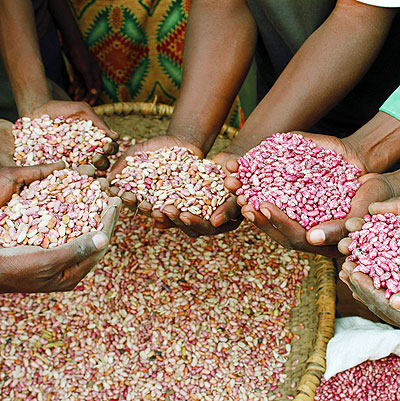Editor, DURING THE just-concluded 11th National Leadership Retreat (see the article, “2014 Retreat: Government to probe stalled projects”, The New Times, March 11), it emerged that the agricultural production has reduced by 50 per cent, and it is impacting negatively on our GDP which stands at six per cent instead of the 11 per cent target.


Editor,
DURING THE just-concluded 11th National Leadership Retreat (see the article, "2014 Retreat: Government to probe stalled projects”, The New Times, March 11), it emerged that the agricultural production has reduced by 50 per cent, and it is impacting negatively on our GDP which stands at six per cent instead of the 11 per cent target.
President Paul Kagame tackled this issue saying that performance has to be significantly improved if the country is to realise growth targets as laid out in EDPRS 2 and Vision 2020.
Following the President’s speech, I thought twice about our economy. Our country enjoyed high level of growth in 2006, when the growth hit an impressive double digit and the following year we managed to register eight per cent economic growth, a record it has sustained since, turning us into one of the fastest-growing economies in Africa.
This sustained economic growth has succeeded in reducing poverty, with growth between 2006 and 2011 reducing the percentage of the country’s population living in poverty from 57 per cent to 45 per cent.
As an environmentalist, I want to suggest what can push economic growth in the environment sector. As we know, Rwanda is a country of little natural resources, and the economy is based mostly on subsistence agriculture with farmers still using rudimental tools.
An estimated 90 per cent of the working population works on farms, and agriculture comprised an estimated 42.1 per cent of GDP in 2010.
Since the mid-1980s, farm sizes and food production have been decreasing, due in part to the resettlement of displaced people. Despite Rwanda’s fertile ecosystem, food production often does not keep pace with population growth and food imports are required.
In addition, our economy is strongly based on the largely rain-fed agricultural production of small, semi-subsistence, and increasingly fragmented farms.
There comes the issue of climate change with its great impact on agricultural output hence economic growth is definitely affected.
As net economic effects vary with the range of climate projections and the analytic models used, for Rwanda it is clear that we are under serious threat.
The impacts and economic costs of current climate variability and events in Rwanda are already very significant, not least due to high population pressure.
The country has high land use pressures and is exposed to a risk of high degradation of lands and erosion due to floods and rains, as well as desertification trends and droughts in some regions of the East and South-East.
Fred Daniel Nzasabimana, Rwanda


